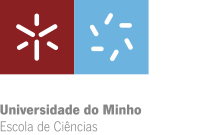The ECUM International Seminars Programme aims at bringing to the University of Minho and community in large the knowledge and experience of distinguished and internationally renowned scientists and experts in the fields of live and exact sciences, as well as on associated technologies.
The seminars will be broadcasted online and will happen on a regular basis, being opened to everyone.
We invite you to get connected to science and technology!
1st Seminar | July 21st , 2021| 17h30 | on zoom and Youtube
Climate Change and the Plant Biotechnology Challenge
Eduardo Blumwald, Dept. of Plant Sciences, University of California, Davis.
Poster »»
Abstract: Current and predicted climatic conditions, such as prolonged drought and heat episodes, pose a serious challenge for agricultural production worldwide, affecting crop growth and yields, and compromising food security. Transgenic crops provide a promising avenue to reduce yield losses, improve growth, and provide a secure food supply for a growing world population. The acclimation of plants to water-deficit stress conditions is a complex and coordinated response involving thousands of genes. A generalized strategy used by plants to cope with water deficit is drought escape, where drought-stressed plants complete their life cycle through rapid growth and early flowering, resulting in low plant productivity and inferior seed yields. Here, the applications of multi-omics approaches and the efforts in our laboratory towards the generation of stress-tolerant crops will be presented and discussed.
2nd Seminar | September 28th, 2021 | 17h00 | School of Sciences Auditorium, on zoom and Youtube
From Particle Physics to robotic medicine - working as a physicist at Siemens Healthineers
Nils Pickert, Solution Engineer at Siemens Healthineers.
Poster »»
Abstract: After doing my PhD at the HERMES experiment (DESY), I left science and joined industry. I will share my experiences on working in a big multinational company, the different cultures in science and industry, collaborating with small start ups, and give a brief introduction on the development processes of medical devices
3rd Seminar | November 25th, 2021 | 16h00 | on zoom and Youtube
Biomolecule folding and association: from in vitro to in-cell
Martin Gruebele, James R. Eiszner Professor at University of Illinois at Urbana-Champaign.
Poster »»
Abstract: Biomolecular energy landscapes are sensitive to the solvation environment. Proteins and nucleic acids fold, bind, or phase-separate with great sensitivity to concentration, temperature, pressure, crowding, and, in the cytoplasm, 'sticking' because these processes are often quite cooperative. I will discuss examples ranging from pressure-induced unfolding/refolding in vitro, to in-cell modulation of protein-RNA interactions, to temperature-controlled formation of phase-separated regions in cells.
Short biography: Martin Gruebele was born in Stuttgart, Germany in 1964. He obtained his BS in 1984 and his PhD in 1988 at UC Berkeley with Richard Saykally, did a postdoc with Ahmed Zewail at Caltech, and then joined the faculty at the University of Illinois in 1992. There, he is currently the James R. Eiszner Chair in Chemistry, Professor of Physics, of Biophysics and Quantitative Biology, in the Center for Advanced Studies, and in the Carle-Illinois College of Medicine. His research interests include protein and RNA folding; fast dynamics in live cells; vibrational energy flow in molecules, quantum computing, measurement, and control; nanoscale imaging of excited states; glassy dynamics; and locomotion behavior. He is a Fellow of the American Physical, Chemical and Biophysical Societies, the American Academy of Arts and Sciences, as well as a member of the National Academy of Sciences and the German National Academy of Sciences. He has edited for the Journal of Physical Chemistry, and the Journal of the American Chemical Society. His group's work is published in over 300 papers and reviews. Martin Gruebele is married to Nancy Makri, with two children, Alexander, and Valerie. In his free time, he runs, bikes, swims and builds tiny models.
4th Seminar | January 13th, 2022 | 17h30 | on zoom and Youtube
Fertility preservation at pre-extinction stage: The Caracal in the Arabian Peninsula
Senan Baqir, Department of Biology, Sultan Qaboos University in Oman.
Poster »»
Abstract: The caracal (Caracal caracal) is an elusive animal that is known to occur in the semi-desert region of the Arabian Peninsula. However, the last sighting was reported ten years ago in the wild in Oman, yet the numbers in captivity are at an alarmingly low level with only 6 animals. The scarce and unsustainable population points to an extinction trajectory in the next 5-10 years. Species revival at pre-extinction stage by augmenting the dwindling metrics in captivity mandates an urgent deployment of ex situ reproductive schemes at an early age to thwart inbreeding depression and maximize genetic diversity. To this end, our efforts are currently centered on biobanking sound germplasm cells and tissues from recently and historically deceased Caracals for future adoption of assisted reproductive technologies.
Short biography: Dr. Senan Baqir is an academic and research scientist specializing in the field of reproductive biotechnology. He completed his MSc. degree at the Szent István University, Gödöllő, Hungary in reproductive physiology focusing on modern techniques such as IVF and embryo cryopreservation. This was followed by a PhD degree from the Université de Montréal, Canada, specializing in the field of stem cells reprogramming, reproductive cloning and epigenetics. He carried his post doctorate tenure at the department of biomedical science, University of Guelph, Canada where much of his research has focused on stem cell derivation and differentiation. He is currently an assistant professor at the department of biology, Sultan Qaboos University in Oman. His current research interest is focused on biodiversity conservation of Oman endangered species by applying state of the art reproductive techniques. He is an active contributor to several conferences that are organized by renowned international scientific societies such as the AETE, SCB, IETS, SSR, ICAR, AAA & ESDAR whereby much of his work has been presented in the last 17 years.


